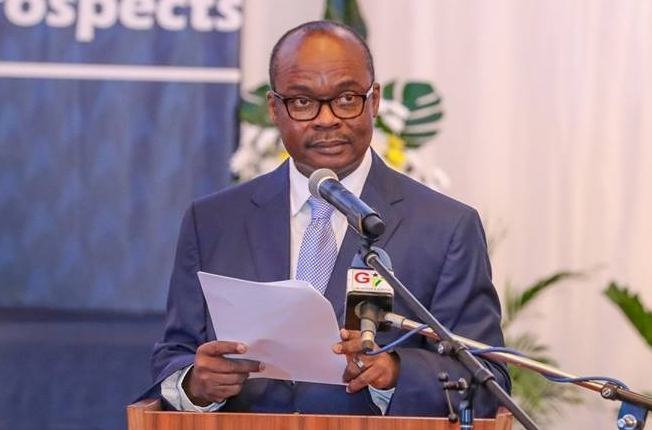Following a vote by the EMT, chaired by Vice President Dr. Mahamudu Bawumia, the Central Bank announced last September that all 34 banks in the country have up to December 31, 2018 to increase their minimum capital from GHC120 million to GHC400 million.
This means all banks, foreign, local-foreign partnership and wholly-Ghanaian-owned (indigenous) have only one year, three months to raise an additional GHC280 million each to meet the MCR.
Some of the big foreign banks have announced that they are ready to pay way ahead of the deadline, but the smaller banks, mostly the indigenous ones are asking for more time otherwise they face either eventual collapse, buy outs by foreign banks or mergers that will reduce local stake in the financial industry.
The ten indigenous universal banks are Prudential Bank, Royal Bank, Unibank, Beige Bank, OmniBank, GN Bank, Sovereign Bank, Heritage Bank, Premium Bank, and Construction Bank.
In their 11-page petition to the president, the indigenous banks stated that they are willing to pay the GHC400 million but it beats their minds why the BOG would give them same deadline as the bigger banks.
Indeed, on previous occasions when MCR was raised, indigenous banks were given an average of four years to pay, so this new policy is out of the norm and it is unsettling for them because of their size and comparative muscle.
In 2003 for instance, when BoG raised MCR, banks were given almost four years to pay up, and in 2008 they were given almost five years to settle. At other times, the payment period was even flexible for existing banks, while new entrants were required to comply immediately.
Payment schedule
The indigenous banks have therefore proposed a payment schedule of annual installments over a period of five years ending 2022 when they would each have finished paying the GHC400 million.
In that schedule, they propose that by December 2018, the will raise MCR to GHC170 million each; December 2019, GHC220 million; December 2020, GHC280 million; December 2021, GHC340 million the the final install to make up the GHC400 million will be done by December 2022
Adamant BOG

While the petition of the indigenous is still before the president and a committee has been set to take a look at their plea, the Governor of the Central Bank and his lieutenants are out saying their decision is final.
They cited poor corporate governance practices at several of the indigenous banks, leading to the collapse of two, takeover of of the administration of two others by assigns of the Central Bank, and indeed speculation of even others facing grave liquidation problems.
The Central Bank is therefore suggesting the smaller banks should either go into mergers or roll back into lower tier financial service companies to bring some sanity into the banking sector.
Local content risked
Spokesperson for the Association of Indigenous Universal Banks, Issah Monney told Adom News whereas the regulator has a point in raising concerns about the poor corporate governance practices in the indigenous banks, a policy that collapses them is also not consistent with government’s own touted support for local businesses.
“Government is pursuing a laudable One District One Factory policy p, which promises to create and grow local industries and provide jobs; meanwhile, the regulator of the financial sector is pursuing a policy that threatens to collapse local industries and create unemployment,” he said.
Informal sector denied
He noted that if the indigenous banks merge, it will reduce the overall Ghanaian stake in the mainstream financial sector and or push Ghanaians to the fringes while foreigners run the sector and dictate the health of the economy.
“It is not a secret the many of the foreign banks are not committed to supporting informal sector, which make up over 60 per cent of businesses in the country. Foreign banks steer clear of the informal sector and any other high risk investment that have positive implication for the economy, but that is where the indigenous banks focus to help drive the economy, grow businesses and create jobs,” he noted.
Issah Monney said the suggestion that indigenous banks should roll back to a lower tier in the banking sector is not the best because they have used their banking licenses to support SMEs to grow and it would be rather disappointing for them to roll back to a lower tier where they are restricted from offering the level of support their are offering now with their banking licenses.
“And there is no guarantee that the indigenous banks will merge or move to a lower tier – what is likely to happen is for them to sell to foreign investors and that will harm the economy in the long run because we cannot have a successful financial sector owned by foreigners in Ghana,” he said.
Analysts
Meanwhile, some analysts have raised several concerns about the entire policy, one of which is the quantum of the MCR itself, GHC400 million ($88.5million), in an economy like Ghana where GDP is just a little over $46 billion.
They noted that in neighboring Nigeria, where GDP for 2017 was more than $400billion, MCR for universal banks is $70million; In Kenya MCR is $50 million, meanwhile, GDP is over $75 billion.
Moving outside of Africa, in India MCR is $77.5 million; in Australia MCR is $50 million; in Switzerland it is $10.2 million, in Luxembourg it is only $8 million; in Canada is is as low as $5 million, and in the fabulously rich countries of Dubai and Abu Dhabi, MCR is just $14 million each.
All those economies are much much bigger than Ghana so analysts have been questioning what informed the pegging of MCR at $88.5 million in Ghana beyond the accusations of poor corporate governance.
Meanwhile, some foreign investors are said to be lining up to take over the indigenous banks and indeed some have started contacting those banks with either buy out or majority stake offers
